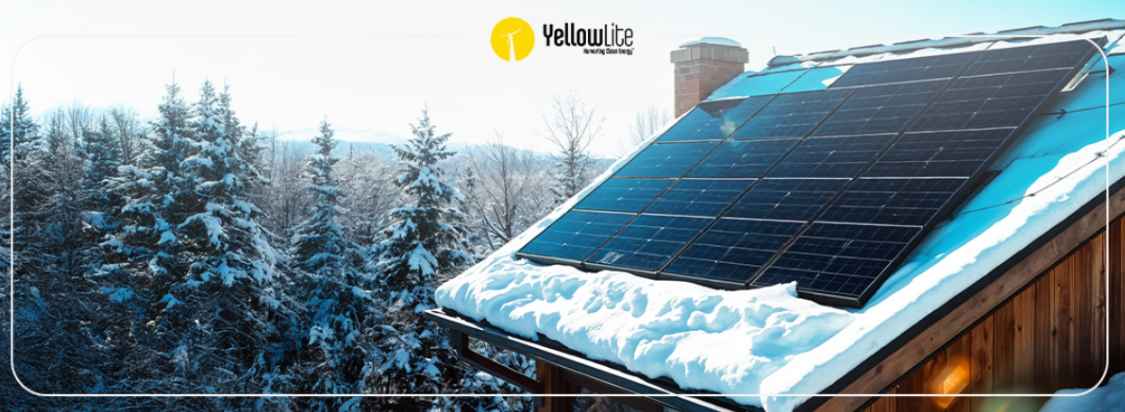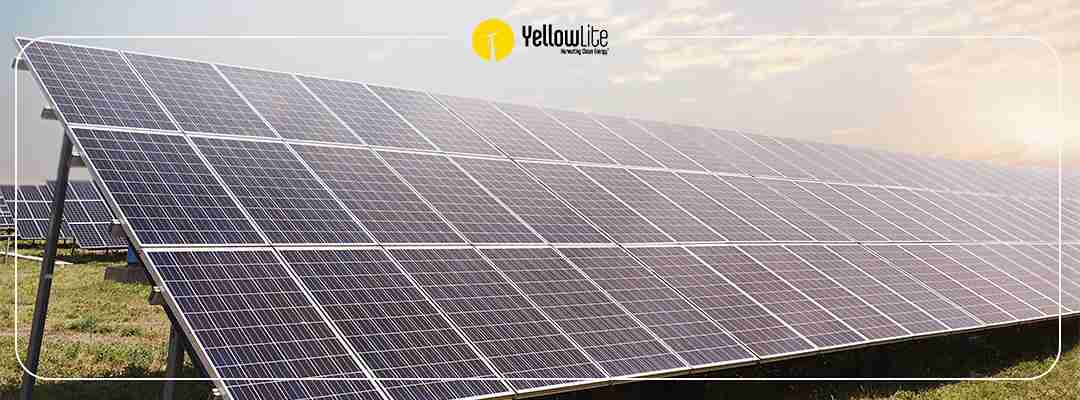Solar energy systems are a great choice for the environment and property owners alike. If you’ve made the switch to solar power, then you’re experiencing the benefits of a smart, cost-effective energy solution that requires little maintenance. While solar is a pretty low maintenance option, taking extra care to clean panels can help keep them running smoothly, more efficiently, and help improve their overall longevity. A clean surface lets your system continue absorbing the light it needs to generate solar energy.
Layers of dirt, snow, and other debris can build up and cause coverage that blocks sunlight and prevents your system from reaching its full potential. Monitoring your energy output is a good way to figure out when it’s time for a cleaning. Panels that are kept in great condition with regular maintenance generate clean energy more efficiently.
Precautions When Cleaning
Before you get started on cleaning, there are a few important points to consider. The first is your safety: if your panels are part of a rooftop system, tending to them on your own can be dangerous. Use safe practices such as wearing shoes with more traction and avoiding the roof altogether in wet or icy conditions.
Another factor to take into account is the type of cleaning products that you plan to use on the panels. Most manufacturers of solar panels do not recommend using traditional chemicals to clean the panels, nor water with a high mineral content. Using harsh substances risks damaging the surface of the panels. Even regular soap can leave behind a film that attracts more dirt.
How to Clean Your Panels
Follow the guidelines below to learn about how to keep your system clean and working efficiently for years to come.
1. Check the Manufacturer Manual
First, check the manufacturer manual that came with your panels. The manual contains valuable information on how to shut down the system before you get started with the proper maintenance steps which are recommended. Some manuals also contain detailed information on how to clean your specific panels.
*If you can’t find your manual, give us a call at 216-333-1364 or contact us online; we’d be happy to help you get a copy.
2. Turn the System Off
The most important thing to do before you clean is to shut off the system entirely. If you do not shut down your system, you could risk inflicting irreparable damage to your panels and the system itself.
3. Inspect for Cracks
It’s a good idea to check for cracks or other irregularities on the panels. When you do notice any cracks or faulty connections, do not attempt to fix the problem yourself. Trying to repair electrical damage can be dangerous, so hire an electrician to handle the issue.
4. Clean During a Cool Time
Solar panels can become extremely hot while taking in sunlight, so cleaning them in the heat can put you at risk for burns. It can also hinder the cleaning process since water will evaporate more quickly. Clean during a cool time, in the morning or evening, to avoid these issues.
5. Clean from the Ground
Depending on the setup of your system, it may be possible to clean from the ground instead of staying on the rooftop. If you can, try using a hose or cleaning tool with an extension pole so that you can reach the panels for cleaning while staying safely on the ground.
6. Brush Off Loose Materials
Before you start to clean with water, check your system for any loose debris. Leaves, sticks, or other items should be brushed away before actually cleaning the surface of the panels.
7. Use Water or a Non-Abrasive Cleaner
As mentioned before, some chemicals can damage your panels, so avoid those products at all costs! Spray the panels with water, and then use a soft pad on the end of an extension pole to clean them with just water or a non-abrasive cleaner.
8. Rinse and Squeegee Dry
Once you’ve washed your panels, rinse them off completely with water. Even if you avoided cleaners altogether, make sure to rinse off any remaining dirt. Use a squeegee to dry them without smears.
9. Dry Edges with Lint Free Cloth
The edges of the solar panel are also quite sensitive, so use a lint-free cloth to dry the edges after you are done using the squeegee on the panel itself.
10. When it Comes to Snow
Snow usually slides off of the surface on its own, but if a layer has made itself comfortable, simply wipe the snow away manually with a brush or other tool with an extension pole.
Helpful Cleaning Tools
In order to complete these steps, you'll need to pick up a few tools, many of which are similar to those used for window washing. There are a number of tools that are specially made to clean solar panels. The following can help you to execute the job safely and efficiently:
- Extendable Pole: a good option to safely clean your system from the ground.
- Sponge or Soft Brush: use a soft brush or sponge attached to the extendable pole to avoid damaging the surface of your panels.
- Mac Pad LambSkin: a soft pad that can be added to the end of an extendable pole to wash the panels without scratching them.
- Angle Adapter: a flexible extension tool for your extendable pole. The tool makes it easier to maneuver your pole into the desired position.
- Squeegee: tool to remove water from the solar panel without damaging the surface.
- Snow Pro: rake tool that makes it easier to remove snow from your system.
- HP06T Portable DI Tank: system that produces pure water for cleaning.
- Window Washing Kit: a combination of specialized tools, such as poles and brushes, which will enable you to clean without needing ladders or scaffolding.
Ask the Team at YellowLite
Maintaining your solar panels regularly is a great way to help preserve your solar power system over time. Keeping the surface clean helps the panels to absorb sunlight directly and increases energy efficiency. Follow the guidelines and see for yourself how easy it is to keep them in pristine condition.
If you have more questions or run into an issue, call up one of our solar experts!
Call us at 216-333-1364
Email us on https://www.yellowlite.com/contact-us/



